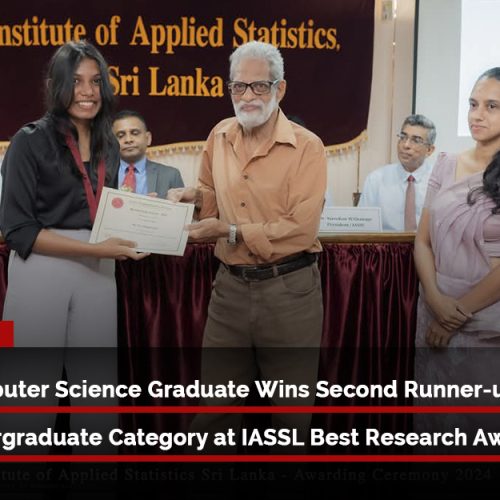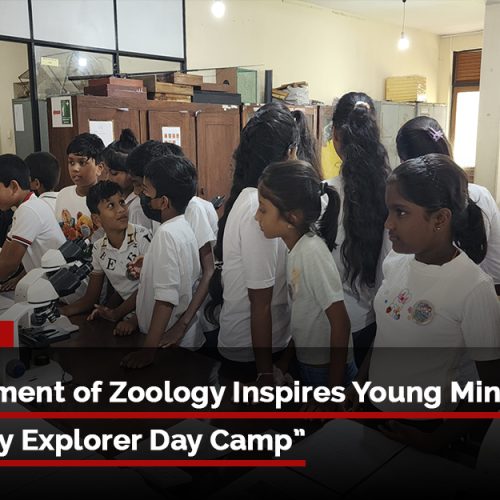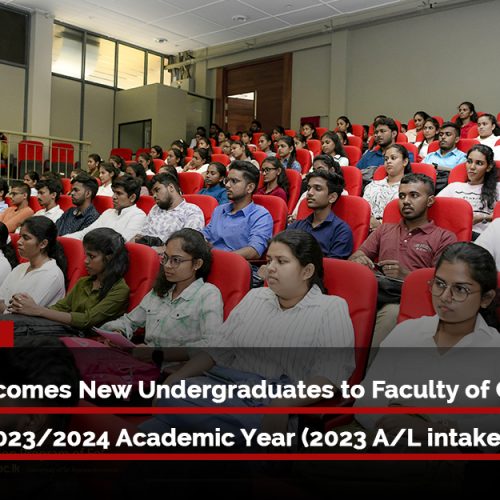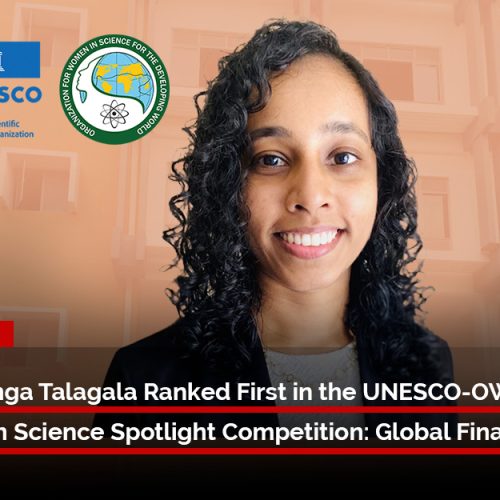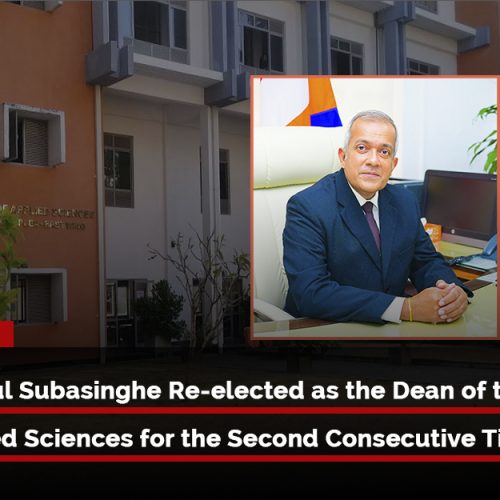Because fossil fuel stocks will be reduced shortly, biofuel is a hot topic. The Centre for Water Quality and Algae Research, USJ, is actively working on a potential solution to the future energy issue.
“Cyanobacteria blooms have potential and usefulness in the production of biofuel”, said Snr. Prof. Pathmalal Manage, Dean of the Faculty of Graduate Sciences and Director, Centre for Water Quality and Algae Research, Department of Zoology, University of Sri Jayewardenepura. As a first step, in 2016, the study team launched an experiment to synthesize biodiesel from a toxic Microcystis bloom in Beira Lake, which was a success, marking the first time in Sri Lanka that researchers could convert cyanobacterial lipids into high-quality biodiesel
Furthermore, the research team is currently working on bacteria-mediated bioethanol production from cellulose biomass, which is a novel concept, and their recent study has published data on the isolation of potential “cellulase-producing” bacteria from cow dung, compost soil, and termite gut, as well as the isolation of sugar, fermenting bacteria from palm wine. Moving forward, they’ve applied the technology to bioethanol production from paper waste and corn cobs, as well as determining the usability of synthesized bioethanol as a fuel blend suitable for diesel engines and determining the usability of bioethanol-diesel blend emulsions by testing fuel parameters at Ceypetco Corporation in Sri Lanka.
Other members of Research team from Centre for Water Quality and Algae Research, Department of Zoology are Mr. D. A. T. Madusanka, Ms. W. M. L. I. Weerasinghe, and Ms. Y. S. Chandrasiri.
“We are also conducting a new research on bioethanol production from solid wastes with our recent IICE competitive research grant”, says Prof. Pathmalal.
Read the full Research Articles:
Read more Research Articles :
90 percent of the new cases in Colombo belonged to the Delta variant says Dr. Jeewandara
Over 95% individuals developed antibodies against the Sinopharm vaccine – USJ Researchers
Single dose of Sputnik V is highly effective but second dose is beneficial says USJ researchers
USJ and USDA-ARS collaborative research team discovered new Pathogenic Fungal species
Wireless Sensor Network to solve Human-Elephant conflict – replacement for existing electric fences?
How COVID-19 patients stigmatize and discriminate in Sri Lanka – Community Medicine Dept. Research


